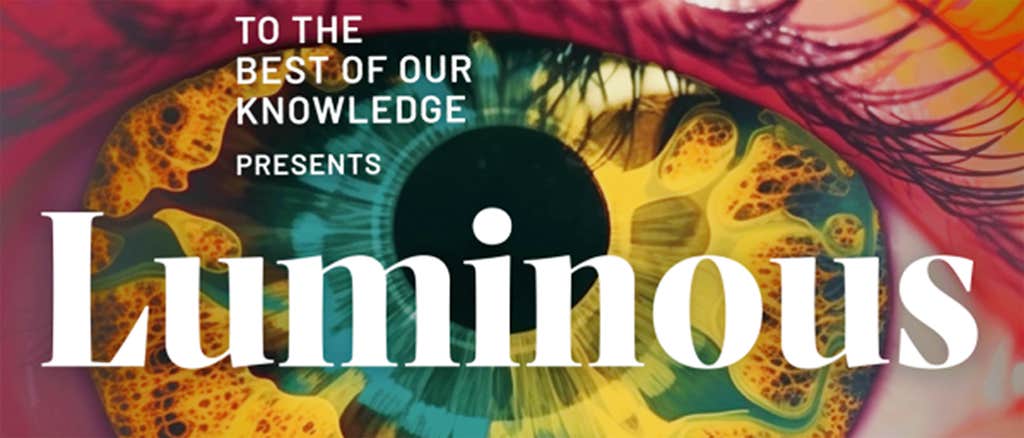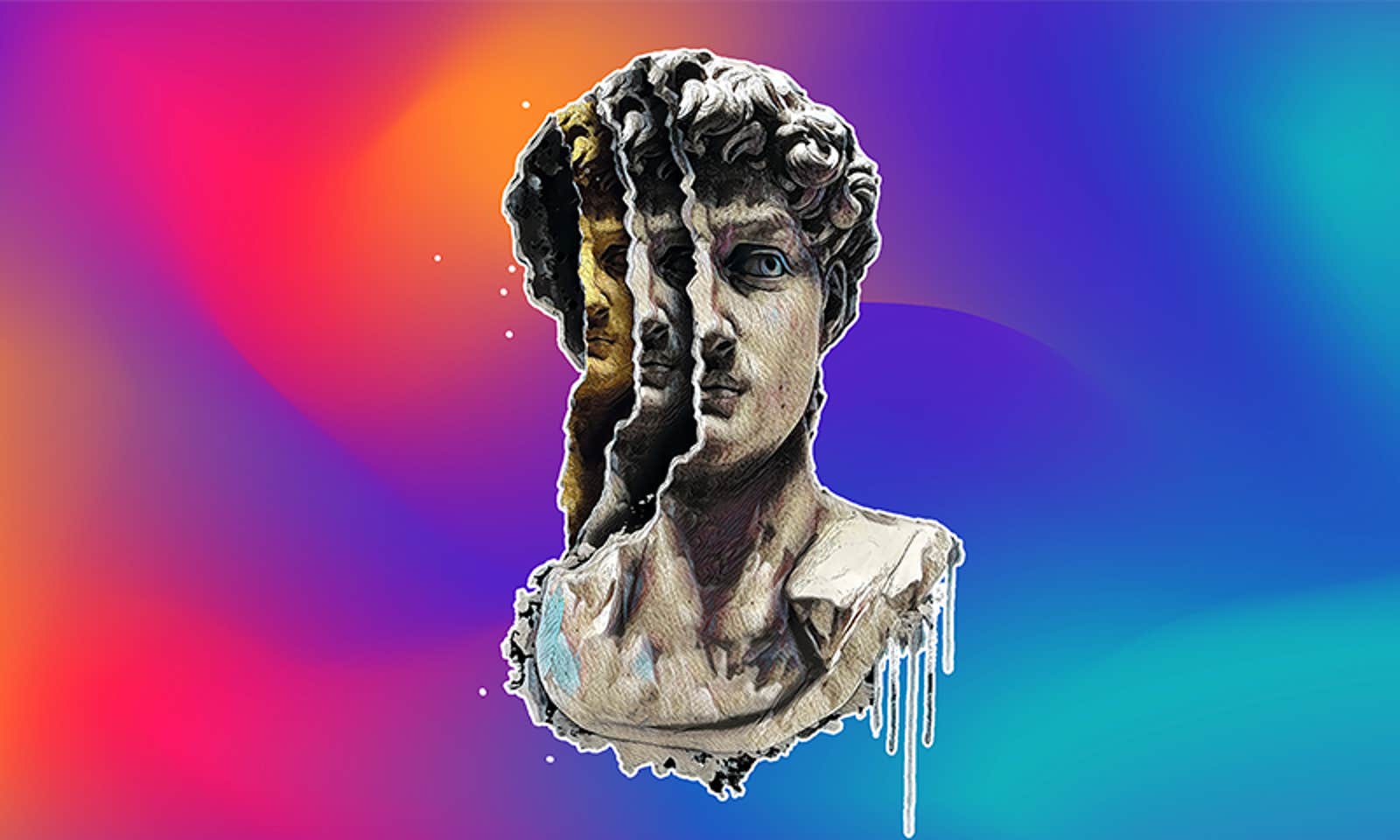Did the ancient Greeks use mind-altering drugs to experience the divine? That’s the provocative theory behind Brian Muraresku’s book, The Immortality Key: The Secret History of the Religion with No Name.
Drawing on the work of earlier scholars, Muraresku suggests there was some sort of psychedelic beer used in sacred ceremonies at the Temple of Eleusis that unleashed heavenly visions. What’s more, he believes this experience not only shaped generations of Greeks, it also laid the foundation for the Eucharist in early Christianity.
Psychedelic beer used in sacred ceremonies at the Temple of Eleusis unleashed heavenly visions.
Muraresku, a lawyer and scholar of ancient languages, spent 12 years researching his book. While acknowledging the speculative nature of this theory, he said there’s no doubt something profound and life-changing happened during these sacred ceremonies.
What’s astonishing is that the Mysteries of Eleusis, as the ceremonies were known, went on for 2,000 years, lasting well into the Roman Empire. And a who’s who of Greek and Roman philosophers and writers—including Plato, Aristoteles, Sophocles, Cicero, and Marcus Aurelius—participated in this transformative experience, but they were all sworn to secrecy.
You’re proposing a radical rewriting of the history of religion. You speculate that psychedelic experiences had a profound influence on religion, going back to ancient Greece and then continuing into early Christianity. Can you briefly summarize your theory?
I really stand on the shoulders of older scholars who have been looking at this idea since at least the 1970s, but I picked up the scent in 1978. There was this inflammatory book called the “Road to Eleusis,” which was co-authored by Gordon Wasson, Albert Hofmann—who famously synthesized LSD back in the 1930s—and Carl Ruck, who’s now the only surviving member of that trio. Together, they hypothesize that something like beer laced with ergot, which is the natural fungus from which we get LSD, was somehow involved in these ancient mysteries in Greece. And that psychedelics or visionary experiences were at the root of Western civilization and these famous Mysteries of Eleusis.
For the longest time, there was no hard science to really prove that. But in recent years, with the advent of archaeobotany, and especially archaeochemistry, we can now study these old chalices and see what our ancestors were actually consuming. And turns out there are some psychotropic clues in the archeological record.
A lot of this history goes back thousands of years to ancient Greece and specifically to the Temple of Eleusis. Do we know what happened there?
So we have an idea, but everything that took place there was secret. There are no written records. And to reveal what you witnessed in that temple, in the Sanctuary of Demeter at Eleusis, was to expose yourself to the penalty of death. This was kept secret and enforced by the Greek state, and it survives for 2,000 years, from about 1500 B.C. to the fourth century A.D.
Was this something that people did just once in their lives?
As best we can tell. Eleusis was a great pilgrimage site 13 miles northwest of Athens. It was some kind of visionary encounter. The big question is, what was that vision? How was it produced? Why did it change people?
Everybody who went to that temple and saw that vision walked away claiming they’d become immortal, that only they had been guaranteed the afterlife.
Do we know how long they were there?
The whole series of events takes place over about nine days and nights. They’re at the actual sanctuary itself for a couple of nights, and then in the culminating experience of their lives—that’s how Ruck refers to it—this all-night feast, the Pannychis, they have this vision.
A magic potion—a beverage called the kykeon—is consumed. Whether or not that was in fact the ergotized potion that Wasson, Hofmann, and Ruck hypothesized as the magic ingredient of this vision, we don’t know.
Everybody who saw that vision walked away claiming they’d become immortal.
You mentioned Demeter, the Greek goddess of the Earth. How does she figure into this story?
The Mysteries were reenacting the seasonal cycles and tapping into this sense of death and rebirth.
The two goddesses to whom the Mysteries of Eleusis were dedicated were Demeter and Persephone. Demeter, the grain goddess, and her daughter, Persephone, who’s abducted by the king of the dead, Hades, into the underworld. Thereby, she becomes the queen of the dead, but she magically resurrects and comes back to the earth after a long, barren winter.
She is a kind of metaphor for the cycle of death and rebirth that all mortals encounter. But to the Greeks, it seems that she wasn’t a metaphor. Clearly, it was something real, something lived, something that got inside their bones and convinced them that they too would resurrect from the dead.
There are so many fascinating pieces to this story. One is that the Temple of Eleusis was run by women.
Yeah, as far as we can tell, it was the priestesses who were mixing that kykeon potion and guiding these initiates into the underworld. Maybe today, we would say it’s the subconscious, or some kind of introspective state of mind or an altered state of awareness.
We’re kind of entering the realm of speculation, but why do you think this experience was so powerful for so many people over the centuries?
Well, like any classic mystery, psychedelics or otherwise, I think what’s at the basis of a mystery tradition is the concept of death and rebirth. You see something like that playing out in the experience that was Eleusis.
You see something similar in the Dionysian Mysteries. The whole point was to become one with Dionysus. It means to bind your soul to the master of life, to your fellow worshipers and to the life of the planet itself. There was something very ego-dissolving, very boundary-dissolving about these ancient mysteries. And you could argue the same about early Christianity. It was some kind of extraordinary encounter with our mortality—and I think the lived experience of dying and being reborn into a new identity.
You traveled to many historical sites, including the Temple of Eleusis, and you talked with the chief excavator there. What did you find out?
I went to Eleusis to ask one question. If this hypothesis from 1978 has any merit, there’s one very easy way to test it—all you have to do is subject one of these ancient chalices that may have contained the infamous kykeon and just see what’s in there. We have these wonderful new techniques like gas chromatography, mass spectrometry, that can dig into these ancient containers and tell us some of the biomarkers that were in there.
When I asked her the question, the unfortunate answer was that all the vessels that have been excavated from this ritual sanctuary had been cleaned. They’d all been cleansed for conservation purposes. So there was no active data on site and I was forced to look elsewhere.
The other big piece of your theory is that the Mysteries of Eleusis led directly to the founding of Christianity, which is a very radical idea. Why do you think that?
This is not my idea—I’m following up on scholarship from Ruck and others. But if you take a big step back, the general idea is sometimes referred to as the “pagan continuity” hypothesis. Maybe some of these archaic pagan cults, some of them even drug-fueled, made their way from the Greeks and Romans into the earliest Christians. And if you just think about it, the one thing that unites both of these worlds is the ancient Greek language, right? The New Testament is written in ancient Greek. Paul is writing most of the New Testament to Greek-speaking communities all over the Mediterranean, not the Holy Land.
The initial gospel is spread by Jesus in Galilee, but the Christian faith really takes root in the Greek-speaking parts of the Mediterranean. As you begin to tease out the language, and look at the early frescoes that were left from the second and third centuries A.D., you begin to construct a picture of Greek-inspired Christians who just may have carried over some of these pagan practices into the new religion.
Does any of this history matter today? It’s fascinating, but does it have relevance to our world now?
I think it raises well-founded questions about the origins of Western civilization. If the Greeks were using drugs to find God, and that was at least part of the inspiration behind the way we organize our government or our economy, or the way we relate to one another, it’s something worth investigating. If this hypothesis is correct and Eleusis is kind of the hub of Greek existence, what would that mean for us today? Are we missing something in the way that we’ve organized our society? When the initiates talk about not just overcoming their fear of death and becoming immortal but coming back from that experience as a fully-fledged member of the human race, it offers a tantalizing clue as to what may have fueled the success of democracy.
Excerpted from Luminous, a series from To the Best of Our Knowledge, hosted by executive producer Steve Paulson. Luminous explores the philosophical and cultural implications of psychedelics through conversations with scientists, healers, and religious scholars. You can learn more about the series and find where you can listen at ttbook.org/luminous.

Lead image by Tasnuva Elahi; with images by Srgr and StudioLondon / Shutterstock





















